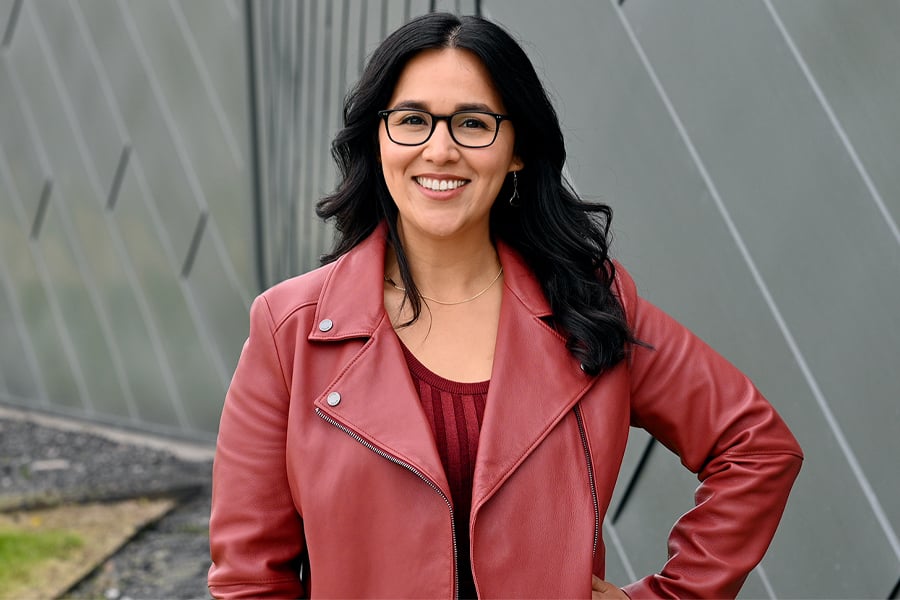

“I thought Morningstar was a brand of vegetarian food,” joked Valerie Rivera, the first recipient of a grant from the Lucy Shair Foundation to help her launch her financial advisory firm. Confusing the fund-rating giant with a producer of plant-based food illustrates how difficult it is even for professionals like Ms. Rivera, with experience in community banking, to transition within financial services to an advisory career.
As previously reported in InvestmentNews, the Lucy Shair Foundation for Women in Finance honors an advisor whose career was prematurely cut short when she died in her early 40s of cancer. The foundation’s core goal is to rally resources for women who aspire to run their own firms, according to Ellen Cherveny, the foundation’s chair and a member of its board. Rivera was the unanimous choice for the first grant of $5,000, intended to help offset the cost of starting up.
One of six children in a working-class family of Mexican origin, Rivera put herself through college, graduating at age 25, consciously avoiding the student debt trap she’d seen plague close family members. In the midst of the financial meltdown of 2008, she followed her then-boss from a bank to a white-shoe advisory firm and found herself in a new and utterly foreign world.
The Morningstar brand misunderstanding was the least of her learning curves. “They disregarded me as someone with no value because I had no money or contacts,”Rivera said. “They told me I shouldn’t go for my CFP [credentials].
"It was less about color and more about social class. I didn’t go to the right school and I didn’t grow up on the North Shore,” she said, referring to the tony northern suburbs of Chicago. “I wasn’t one of them, the collective them.”
As she cycled through several subsequent jobs in the investment and advisory sphere, Rivera started to realize that her experience as rising professional, with roots in a first-rung family, comprised a compelling market niche. She had a lot in common with high school friends who became doctors, lawyers and other highly paid professionals: The gap between their financial position and prospects and those of their families was so vast that it called for extra financial planning tools and investment strategies.
That realization coincided with a rich buyout package offered by her then-employer in early 2020, in the first wave of Covid-19 economic reverberations. “I knew I wanted to serve a greater variety of people, and because the profession has deemed people with less assets as undesirable. They only want to help you once you’re financially successful. They don’t want to help you get there. It’s a Catch-22,” she said.
This year, Rivera opened First Gen Wealth in Chicago. Her vision is to work with professionals of any ethnic background whose financial status positions them — even, in terms of family culture, obligates them — to immediately provide for their parents, overlapping with the arrival of their own children. Such cultural tensions call for deft handling of class, definitions of wealth and faulty assumptions that can undermine traditionally designed financial plans.
“I’m really clear about the fact that I want to normalize financial advice for everyone,” Rivera said. “I’m trying to break down the idea of who’s deserving because so much of the industry makes people feel like they’re not.”

The move to charge data aggregators fees totaling hundreds of millions of dollars threatens to upend business models across the industry.

The latest snapshot report reveals large firms overwhelmingly account for branches and registrants as trend of net exits from FINRA continues.

Siding with the primary contact in a marriage might make sense at first, but having both parties' interests at heart could open a better way forward.

With more than $13 billion in assets, American Portfolios Advisors closed last October.

Robert D. Kendall brings decades of experience, including roles at DWS Americas and a former investment unit within Morgan Stanley, as he steps into a global leadership position.
Orion's Tom Wilson on delivering coordinated, high-touch service in a world where returns alone no longer set you apart.
Barely a decade old, registered index-linked annuities have quickly surged in popularity, thanks to their unique blend of protection and growth potential—an appealing option for investors looking to chart a steadier course through today's choppy market waters, says Myles Lambert, Brighthouse Financial.
